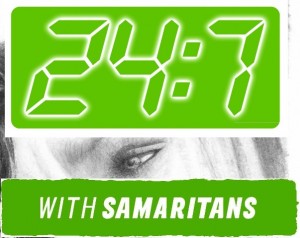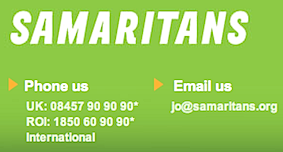According to Chambers we need to have a "positive conversation" about mental health. As opposed to one that says that health is bad, and a thing to be avoided. We need to be positive about our mental health, but also worry about it and be constantly "minding ourselves". Positive is tacked on here as a buzz-word, something being used to sell us a product; the concept of mental health.
Chambers writes that "Too often, mental health equates to mental illness in the public consciousness." He's right there. Headlines often proclaim that Celebrity X "struggles with mental health". The reason for the this confusion is due to semantic squeamishness on the part of editors. No one wants to write the words "mental illness". So now we have "mental health problems" or "mental health issues" or even "mental health", as in "she suffers with her mental health". We all know what that means.
Attempts to bisect the coin that has health on one side and illness on the other are well-meant but illogical. "Positive mental health" does not mean the blessed state of being free of psychiatric illness. Rather, it is a large sub-section of the wellness and well-being industry, a concept brought to us by self-help books, motivational speakers and life coaches.
"The trick, when it comes to changing attitudes, is to convince as many of the population as possible that mental health is personal to them." The trick, indeed. Read that sentence again, and ask yourself if you're starting to feel tricked, misled or misinformed.
"Through the internet, we have the potential to market mental health as a fundamental part of being human." Chambers is right here; mental health is a product and we are being persuaded to but into the concept, to invest our time, effort and often money, into gauging, maintaining and repairing this new product. A product that, like the internet about which Chambers enthuses, is now so part of our daily lives that we take its existence for granted. It's hard to remember a time before "mental health" was not a given term in our lexicon.
The article ends on a positive note, telling us all to use an Australian-developed app to send each other "cyber-cuddles". World Mental Health Day is "about all of us". Or is it? For all its positivity and celebration of the fun of mental health, the article is followed by an "If You've Been Affected List."
The list includes the Samaritans, Pieta House, Console and Aware. Now if positive mental health is the harbinger of a new happier way of life, then why are these help-lines for those affected by distress, suicide and mental illness?
Because the idea that mental health is a product, available to all who invest the right resources, and simultaneously as a vulnerable state that is as prone to decay as depleted uranium, has contributed to an increase in distress in the population. In particular it has convinced thousands of young people that they have a health problem, and need "help". It has convinced their parents of the same.
This is from today's Irish Times http://www.irishtimes.com/news/social-affairs/more-mental-disorders-among-young-irish-study-shows-1.1556225
A report from the Royal College of Surgeons in Ireland...indicates that one in three young people in Ireland is likely to have experienced some form of mental disorder by the age of 13.
This rate increased to more than one in two young people who had experienced some form of mental disorder by the time they reached the age of 24.
Based on international evidence, this means up to one third of Irish adolescents and over one half of young Irish adults are at increased risk of mental ill-health into their adult years
As commenters on thejournal.ie are so fond of saying, correlation is no proof of causation. But I wonder if there is any link between the numbers of young people who feel they are mentally different from others and how mental health is promoted. The report lists risk factors for mental health disorders but have these risk factors increased? Or has our detection rate increased, in which case this should be a good news story instead of an opportunity for the wringing of hands.
In cases of genuine mental distress, I think we are better at picking things up than before, but that progress has been slow or non-existent in the area of child protection. By the time a teenager presents with a mental health disorder, most of the damage of abuse or neglect has been done. These young people will not be saved by "cybercuddles" but a properly resourced and efficient social work system would be a help.
And while family problems have historically been under-reported in Ireland, do we really believe that half of all Irish young people are from dysfunctional homes? One in two, that's half. A pandemic. Are all these young people really mentally ill, or have they just failed to meet the standards demanded by "positive mental health"? A standard that I've described as approaching perfection.
Helen Coughlan, clinical research fellow at the RCSI, is quoted in the Irish Times as calling for services to support young people in need before they reach a crisis. So far, so sensible but she goes on to assert that "Mental health literacy should also be highlighted more within the education system".
Why? The majority of children are not at risk. Those that are, are at risk because of circumstances they cannot control, circumstances that it is our responsibility, as the adult members of society, to rectify as much as possible.
I'm going to leave you with an extended quote from Kathryn Ecclestone and Dennis Hayes' book "The Dangerous Rise of Therapeutic Education".
"Far from creating a more balanced and rounded personality, therapeutic education promotes the emotionally diminished human subject and promote a life focused on the self and self-fulfilment rather than with understanding and changing the world. The paradox of therapeutic education...is that an obsession with the self means that you will not change the world, and nor will you change yourself: it is active engagement with the world that leads to confidence, self-esteem, fulfilment, or to used the latest piece of therapy-speak "happiness and well-being" The wish and will to change the world characterises humanity; to turn humanity inwards is to diminish all our selves."














